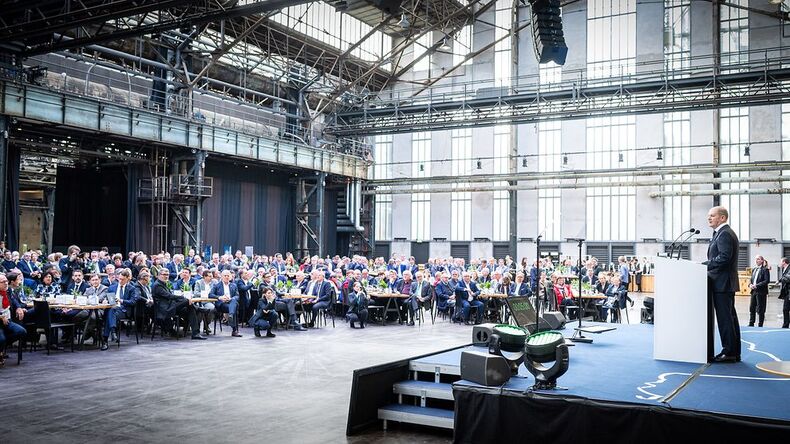Chancellor Olaf Scholz: Steel industry vital for Germany’s future
by David Fleschen

At the 125th anniversary celebration of the Emschergenossenschaft in Bochum, German Chancellor Olaf Scholz highlighted the critical role of the steel industry in ensuring Germany's industrial competitiveness and economic sovereignty. In his speech, Scholz reaffirmed the government's commitment to supporting the sector as it navigates the dual challenges of climate transformation and international competition.
"Steel Must Be Made in Germany"
Chancellor Scholz underlined the strategic importance of maintaining steel production and processing within Germany, describing it as a foundational pillar of the country's industrial landscape. "Steel must continue to be produced and processed in Germany," Scholz declared, emphasizing its essential role in countless industrial value chains, from automotive production to national defense.
He pointed to projects like Thyssenkrupp’s transition to climate-friendly production methods as examples of how the steel industry can align with Germany’s environmental goals. However, Scholz stressed that government support for this transformation comes with clear expectations: "Production and jobs in Germany must be preserved."
For Scholz, the future of steel is not just an economic issue but a geostrategic one. He warned against the gradual outsourcing of steel production, arguing that losing this core industry would harm Germany's strategic sovereignty. "Steel is a resource that will remain essential for centuries to come. It is vital for our industrial processes and strategic independence," he stated.
A Pragmatic Path to Green Steel
Scholz outlined the government's efforts to help the steel industry transition to climate-friendly technologies, ensuring its sustainability in a competitive global market. He emphasized the need for pragmatism in balancing environmental goals with economic realities. "We must avoid setting regulations so strict that industries relocate to countries with lower environmental standards. That helps no one—not the climate and not Germany," Scholz argued.
To support this transition, Scholz highlighted the importance of affordable energy. He detailed measures already in place, such as electricity tax reductions and energy price stabilization for energy-intensive industries, while proposing further steps to cap electricity transmission costs. From 2025, transmission fees will be halved to 3 cents per kilowatt-hour—a move Scholz said would provide the steel industry with the cost stability needed for future investment.
Hydrogen as a Key to the Industry’s Future
The chancellor also stressed the importance of hydrogen in the future of steel production, advocating for a realistic, phased approach to its adoption. “The transition from gas to hydrogen must be guided by economic conditions, not idealistic timelines,” he said. Scholz called for prioritizing the development of hydrogen infrastructure and supply to ensure the feasibility of large-scale adoption in industrial processes, including steel production.
Fighting for the Future of Steel
Chancellor Scholz concluded by reiterating his personal commitment to protecting and advancing the German steel industry. He pledged continued collaboration with steel manufacturers, unions, and stakeholders to secure jobs and production capacity within the country. "We must not allow steel production to shrink bit by bit," Scholz warned, emphasizing the importance of preserving a fully integrated domestic steel production chain.
Source and Photo: German Government

